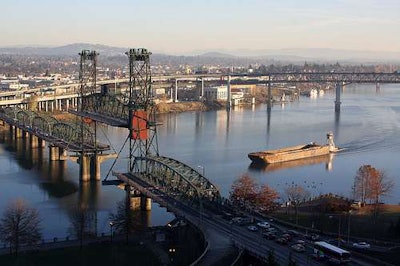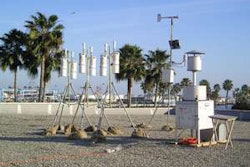
The U.S. Department of Transportation on Wednesday, April 7, unveiled a new initiative to move more cargo on the water rather than on U.S. highways. Under the “America’s Marine Highway” program, DOT’s Maritime Administration will help identify rivers and coastal routes that could carry cargo efficiently, bypassing congested roads around busy ports and reducing greenhouse gases.
“For too long, we’ve overlooked the economic and environmental benefits that our waterways and domestic seaports offer as a means of moving freight in this country,” U.S. Transportation Secretary Ray LaHood told transportation professionals at the 7th annual North American Marine Highways and Logistics Conference in Baltimore. “Moving goods on the water has many advantages. It reduces air pollution. It can help reduce gridlock by getting trucks off our busy surface corridors.”
Under the new regulation, regional transportation officials will be able to apply to have specific transportation corridors – and even individual projects – designated by DOT as a marine highway if they meet certain criteria. Once designated, these projects will receive preferential treatment for any future federal assistance from the department or MARAD.
“There are many places in our country where expanded use of marine transportation just makes sense,” said David Matsuda, MARAD acting administrator. “It has so much potential to help our nation in many ways – reduced gridlock and greenhouse gases, and more jobs for skilled mariners and shipbuilders.”
The Marine Highway initiative stems from a 2007 law requiring the Secretary of Transportation to “establish a short sea transportation program and designate short sea transportation projects to mitigate surface congestion.” Earlier this year, LaHood announced $58 million in grants for projects to support the startup or expansion of Marine Highways services, awarded through DOT’s TIGER grants program. Congress also has set aside an additional $7 million in grants that MARAD will award later this year.









